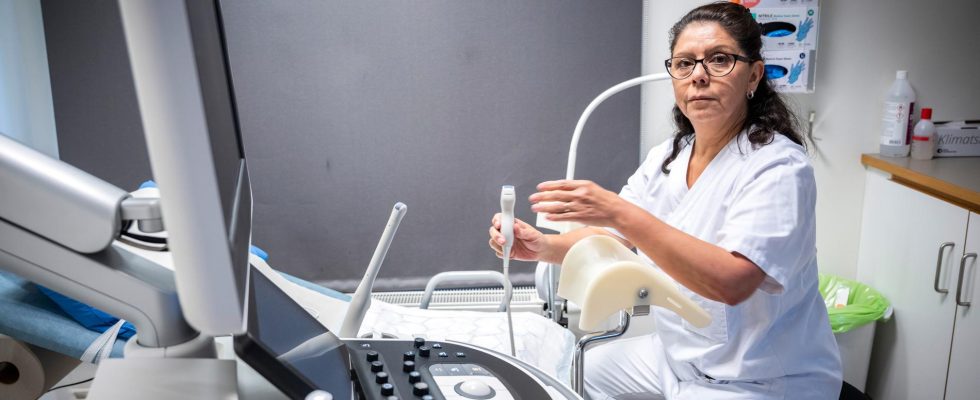Save the article
1 / 4Photo: Johan Nilsson/TT
Danish women go over to Skåne and pay for an abortion after week twelve. But now Denmark may be on the way to expanding abortion rights.
– For the sake of the Danish women, I hope so, says Roxana Leyton, midwife responsible for abortion at Skåne University Hospital.
In Sweden, women do not have to explain why they wish to terminate a pregnancy until week 18.
The same applies to Danish women traveling to Sweden.
Therefore, Roxana Leyton does not know why the Danish women want to perform an abortion at Scania University Hospital, but she knows that they would have preferred to carry out the process in Denmark.
– When they come here, they have to communicate in another language, they don’t know how the system works and they have to travel here. It naturally creates insecurity, she says.
Could be an expensive trip
In addition, they have to pay for the abortion, which usually ends up at SEK 16,000. The first check-up costs SEK 2,500 and the abortion itself SEK 13,500.
– But if complications arise, it can drag on. For each day that they are admitted, it costs SEK 13,500, says Roxana Leyton.
Today, women in Denmark can have an abortion up to week twelve. They must then apply for a special permit from an abortion council, which in some cases may grant a permit.
Despite the possibility, not everyone applies for the permit before deciding to travel to Skåne, according to Roxana Leyton.
– Some do not bother to apply as they think in advance that the answer will be no. After all, they are already a little further along and don’t want to risk dragging out the process even more.
New recommendation
But now the debate about the limit for free abortion has once again become relevant in Denmark. This after the country’s ethical council issued a recommendation that the limit should be extended from twelve to 18 weeks, which is the current limit in Sweden.
Three parties on the right, Dansk Folkeparti, Nye Borgerlige and Danmarksdemokraterna, already stated in advance that they do not wish to change the limit for abortion.
Three other parties have stated that they want to change the current legislation. The other five parties, the Social Democrats among others, have said that they will come up with a new decision after the council’s new recommendation. But so far, none of the parties has given a statement on the matter.
Leads to unequal care
Roxana Leyton, who herself hopes that women in Denmark will have the same opportunity for abortion as Swedish women, believes that the possibility of paying for abortion creates unequal care.
– We live in a time where women can find solutions thanks to the digital revolution. When you have money, you can always buy yourself a safe abortion. It is also a trend that can be seen in countries where abortion is prohibited.
She estimates that annually between 14 and 18 Danish women come to Skåne University Hospital for an abortion after week twelve. No one knows how many there are in total in Sweden because no statistics are kept.
The possibility has existed since 2008, when foreign women were given the right to free abortion in Sweden, even though they are not resident in the country.
– Perhaps not many people expected that there would be women from Denmark. We have occasional women from other countries, but Denmark is the only country that stands out. Of course it has to do with the fact that it is close to Scania, but many probably thought that the majority would come from, for example, Poland, says Leyton.
FACTS Abortions in Sweden
Each year, an estimated between 30,000 and 38,000 abortions are performed in Sweden. Last year, 35,450 abortions were performed.
Most abortions are performed early in pregnancy. In 2022, 61 percent of abortions were performed before week 7.
In the last ten years, teenage abortions have decreased. Last year, roughly 8 abortions per 1,000 were performed in the 15–19 age group.
Medical method is most common and was used in 96 percent of abortions in 2022.
Source: National Board of Health and Welfare
Read more
